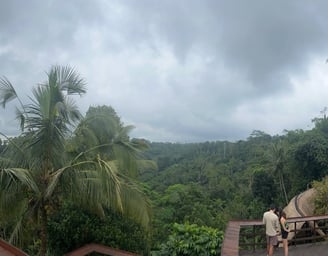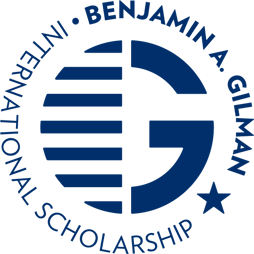Manifesting Dreams


Navigating the Gilman Application
Step-by-Step Guide to Applying for the Gilman Scholarship
Welcome to my website’s comprehensive guide to applying for the Benjamin A. Gilman International Scholarship! This guide will help you navigate the application process and craft strong essays to maximize your chances of success.
www.gilmanscholarship.org/applicants/essays/
What is the Gilman Scholarship?
A highly competitive program, the Gilman Scholarship offers financial aid to undergraduate students in the United States who have little funds so they can study or intern overseas. The initiative, which is supported by the U.S. Department of State, seeks to foster international education and cultural exchange while broadening the diversity of study abroad participants. Through this fellowship, students can develop cross-cultural awareness, acquire important global skills, and improve their career prospects after graduation.
Eligibility Requirements
To apply, you must:
Be a U.S. citizen
Be an undergraduate student in good standing
Receive a Pell Grant at the time of application or during your study abroad program
Be participating in a credit-bearing study or internship program abroad. Check with your
Be applying to a program in a country that is not under Level 3 or Level 4 Travel Advisory (as determined by the U.S Department of State. travel.state.gov/content/travel/en/traveladvisories/traveladvisories.html/
Choosing the Right Study Abroad Program
Before applying, ensure your study abroad program meets Gilman guidelines:
Eligible Destinations: Programs must be located in a country with a Level 1 or Level 2 Travel Advisory.
Academic Relevance: Your chosen program should align with your academic major, career aspirations, or personal development goals.
Diversity & Inclusion: Gilman encourages applications from students in underrepresented fields, minority groups, and those with disabilities. If your program fosters inclusivity or aligns with Gilman’s mission, highlight this in your application.
How to Write Strong Application Essays
1. Statement of Purpose Essay (Max: 7,000 characters)
This is the most critical part of your application. It should clearly convey why studying abroad is essential to your academic and personal growth. The Gilman Scholarship applications consists of three essays.
What to Include:
Why you chose your study abroad program and location: Explain why this country is significant to your studies and goals. As a Geography major with a minor in Geographic Information Systems (GIS), I chose to intern in Indonesia to learn about its culture, language, geography, and environmental issues. The Global Internship Program I applied to connected me with a non-profit organization that specializes in marine protected areas. This opportunity perfectly aligned with my goals and passions, as it allowed me to create maps and contribute to important environmental work. Moreover, this opportunity would provide me academic credit toward my undergraduate degree, allow me to work with nonprofit organizations in developing countries, and gain international work experience in a start-up organization.
How this experience aligns with your academic and career objectives: Discuss how studying abroad will enhance your knowledge, skills, and career trajectory.
Challenges you’ve overcome and how this scholarship will help: Highlight financial hardships, personal obstacles, or any barriers to studying abroad.
Commitment to cultural exchange: Demonstrate how you will engage with the host community and promote cross-cultural learning.
Tips:
Start with a compelling introduction that reflects your motivation. I discussed my background as a first-generation, underrepresented full-time student and shared my educational journey. I expressed my interest in studying abroad and mentioned how I discovered the global internship program at my institution.
My exploration of the travel abroad department at my institution led me to discover the Gilman Scholarship.
Use specific examples to illustrate your goals and experiences. Discuss your host country and the aspects that intrigue you. As a geography major, I mentioned that Bali is a beautiful and fascinating place. I am particularly interested in learning more about its culture and way of life. Additionally, I addressed the challenges that Bali faces, such as environmental issues. I also explored potential solutions to these challenges, including the implementation of sustainable projects to protect its natural resources.
Be authentic and emphasize your financial need. Travel is expensive; do not hesitate to mention your financial situation and how the Gilman Scholarship will help you achieve your dreams and goals.
Show how you will contribute positively to your host community and how you will bring and use those skills in your home country/community. Also, feel free to discuss how you plan to immerse yourself in your host country. I mentioned my intention to take language courses and my desire to develop a more profound cultural interest in my host country. I recommend discussing how you will embrace learning new things and stepping out of your comfort zone by attending cultural events and connecting with future coworkers to express interest in their culture.
Proofread for clarity, grammar, and structure. Share your essays with your writing center, friends, and family for feedback. It is always best to write about your life and influential experiences. Avoid procrastination so you will have enough time to edit your work!
Example:
I am interested in traveling to Bali to learn firsthand about the environmental challenges that the country is currently facing. Bali is experiencing a surge in tourism, straining the Island's water, energy, and food supplies. As a developing country, Bali faces several environmental challenges, including waste management, pollution, water scarcity, and unplanned over-development. The number of tourists visiting Bali has been increasing every year, which has led to a rise in pollution and waste, causing damage to the rivers, oceans, and local health. The development on the Island has resulted in illegal construction, negatively impacting the area's agriculture and natural resources.
3. Follow-on Service Project Essay (Max: 3,000 characters)
The Gilman Scholarship requires recipients to complete a community impact project upon return. This is your chance to give back by raising awareness about global education. My follow-up project involved creating this website to share my journey and inspire future scholars to step out of their comfort zones and pursue their dreams.
Examples of Follow-on Service Projects:
Hosting an informational session at your home university or local high school to encourage other students to study abroad.
Creating a social media blog or video series documenting your study abroad experience.
Partnering with campus organizations to promote study abroad opportunities to underrepresented students.
Writing an article or blog post for your university’s website, newspaper, or study abroad office.
Tips:
Be creative but realistic—choose a project that aligns with your skills and community needs.
Mention specific organizations, schools, or platforms you’ll collaborate with.
Outline a clear timeline and execution plan to show feasibility.
Emphasize how your project will reach a diverse audience and promote the Gilman Scholarship’s mission.
Example:
Making a travel blog is my follow-up Gilman Scholarship project. I have thought of a name. The domain name will be gilmanscholarguide.com. I want to include a tutorial on applying for the scholarship, including advice on navigating the application essay and sharing my personal experience. In addition, I would like to discuss the advantages of being a Gilman Scholar, which include the ability to network with other alumni through the Gilman Scholar Network, webinars, non-competitive eligibility, and graduate school opportunities
The Building Mutual Understanding Essay (Max 3,000 characters)
Define what mutual understanding means to you. Explain why cultural exchange is important and how it shapes global perspectives. Provide a personal anecdote or example of when you engaged in intercultural exchange.
Cultural exchange is about connecting across cultures, fostering respect, and broadening perspectives. During my time in Bali, I engaged with the local community by sharing stories about growing up in Los Angeles, highlighting the diversity of American experiences. I immersed myself in Bahasa Indonesia, using language as a tool to build relationships and show respect for the culture. Beyond academics, I embraced Balinese traditions, music, and daily life, while also sharing elements of American culture, from music to social values. This two-way exchange strengthened my understanding of global connections and deepened my appreciation for cultural diversity.
In my essay on mutual understanding, I discussed the cultural activities I planned to engage in while immersing myself in Bali. However, you can also write about immersing yourself in the cultures of your hometown. This could include getting involved in your community through volunteering and participating in cultural activities at your workplace, school, and extracurricular activities.
Tips:
Language Learning: If you plan to learn or practice the local language, describe how this will help you build relationships.
Local Community Involvement: Mention if you will volunteer, join student organizations, or participate in cultural events.
Academic or Professional Exchange: Explain how your studies will allow you to connect with local students, professors, or professionals.
Discuss How You Will Share U.S. Culture Abroad. Write about how you will share your personal experiences growing up in your hometown to share. It is essential to express interest in their culture, ask questions, and avoid negative opinions.
Identify aspects of American culture you will introduce to locals (e.g., music, food, traditions, or social values). Share if you have a unique background or perspective that adds to the diversity of U.S. representation. If you have hobbies, talents, or professional skills, explain how they can foster cross-cultural connections (e.g., playing music, cooking, or sports).
Highlight How You Will Bring Your Experience Back to the U.S.
How will you educate others about your host country upon your return? Mention if you will present at events, write articles, create media content, or mentor other students.
Example:
There are positive and negative stereotypes about America, so being an American overseas does not mean being conceited. Being kind goes a long way in achieving success abroad. Americans are often seen as shallow, so one should be courteous, patient, friendly, and open-minded to have a positive experience. However, I am currently working on learning basic Indonesian phrases on YouTube, have downloaded a language translation application, and would like to attend language classes while abroad. It's important to me to show that I care by making an effort to understand the language. I will also attend their cultural events, experience things that are not American, and socialize and engage in conversation as much as possible.




